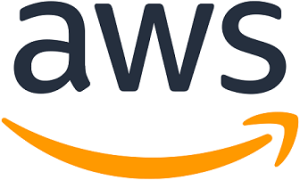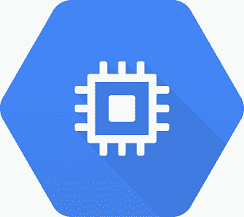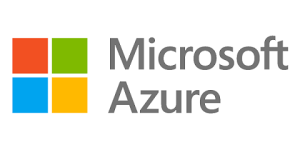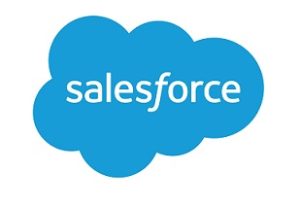Top 10 PaaS Providers.
What is PaaS?
PaaS (Platform-as-a-Service) is a cloud computing model that gives customers access to a complete cloud platform—hardware, software, and infrastructure—for developing, running, and managing applications without the cost, complexity, or inflexibility that comes with building and maintaining that platform on-premises. Everything is hosted at the PaaS provider’s data center: servers, networks, storage, operating system software, databases, and development tools. Customers typically have the option of paying a fixed charge for a set amount of resources for a set number of users or opting for ‘pay-as-you-go’ pricing to pay only for the resources they use. Customers using either option may build, test, deploy, run, update, and scale applications faster and more affordably than they could if they had to construct and manage their own on-premises infrastructure.

Top PaaS Providers
Here are the lists of the best PaaS Providers

1. AWS Elastic Beanstalk
One of the most popular PaaS vendors is AWS Elastic Beanstalk. AWS Elastic Beanstalk can be used to deploy and execute web projects written in a range of programming languages. Java,.Net, PHP, Ruby, Node.js, and Python are just a few examples of programming languages. Upload your code using the simple tools, and AWS Elastic Beanstalk will take care of the rest. Deployment, provisioning, load balancing, and auto-scaling are all included. Many more benefits are provided by the great deep integration with the AWS cloud environment. Take your database, for example. All you'll have to do is use an AWS cloud database service. Adding a database to your Elastic Beanstalk environment is quite simple.Because there is no additional price for AWS Elastic Beanstalk, you can utilise your existing AWS account. The documentation provided by AWS is fantastic. Their courses are extremely thorough; for example, if you need to learn how to integrate 3rd party 'Application Programming Interfaces' (APIs), their tutorials will be extremely beneficial.

2. Google App Engine
Google App Engine is the company's PaaS platform. Its features are connected with Google Cloud Platform, which runs on the same infrastructure as Google. That should put to rest any concerns you might have regarding the infrastructure's reliability. You can build, launch, and manage your apps on a fully managed cloud platform using Google App Engine. Programmers don't have to worry about infrastructure provisioning or configuration, and they can even delegate scaling to Google App Engine. Developers may concentrate on what they enjoy the most: coding. Java, Python, PHP, Ruby, Node.js,.Net, and other major languages are supported by the platform. Google's PaaS has firewall capabilities, 'Identity and Access Management' (IAM), and fully-managed SSL/TLS certificates, among other security features. Google Cloud SDK, cloud deployment manager, and Visual Studio as an integrated development environment are just a few of the Google cloud developer tools available. There is a substantial amount of documentation available. You can pay based on how much processing power you use.

3. Microsoft Azure
Some cloud providers bundle their IaaS and PaaS services together, allowing clients to pick the best option for their needs. This is how Microsoft Azure works. Their PaaS is built on the same solid foundation as Azure's IaaS and SaaS solutions. According to various sources, Microsoft Azure offers highly regarded cloud capabilities. Infrastructure, data centre servers, storage, networking, security solutions, middleware, OS, databases, runtime environments, analytics, and development tools are all included in their PaaS offering. A free trial period, 'pay as you go,' a price estimation calculator, and full pricing of all services are all available on their website, making it simple to make judgments. This fully-managed cloud PaaS comes with a wealth of documentation.

4. Oracle Cloud Platform
Oracle Cloud Infrastructure is made up of a mix of open source and Oracle technologies. This allows customers to design, deploy, integrate, and manage all of their cloud apps more efficiently. Oracle Cloud Infrastructure provides a self-repairing service by combining machine learning and artificial intelligence. It also lowers startup costs and provides predictive analytics. Oracle claims to have the most comprehensive PaaS offering among cloud players. Oracle claims that their platform decreases costs and complexity. It is possible to combine all of your data and applications. The user can move all processes to the cloud with this solution. Everything is controlled from a single location. By default, all data is encrypted. Oracle asserts that their solution takes care of everything. This saves time on time-consuming operations like system maintenance, solution deployment, and mandatory updates.

5. IBM Cloud Platform
IBM Cloud is another significant cloud service platform that promises to help businesses link applications, data, and infrastructure in a seamless manner, particularly in situations where legacy systems must interact with more modern event-driven systems. Data can be readily synced to work both in the cloud and on-premise, and APIs may be created to make it easy for different apps to interact with it. Prebuilt templates for several workflows can be combined to automate activities, such as sending sales data from one application to an email application to automatically build a communications link in another. In addition, workflows are monitored to ensure that they function as planned and that they can be readily modified in response to changing demands, KPIs, or the inclusion of new software applications. The entire process focuses on dealing with business logic rather than worrying about the underlying architecture, and the integration of all apps makes it easier to adapt and match capabilities for maximum efficiency and productivity.

6. Salesforce Platform
Salesforce's 'application Platform as a Service' (aPaaS) continues to have a strong reputation, with market observers reaffirming their favourable opinions. All basic PaaS functions are available in Salesforce aPaaS. Infrastructure, servers, storage, networking, security, middleware, OS, runtime environments, development tools, databases, and the ability to integrate 3rd party APIs with ease are all included. Heroku is used by Salesforce aPaaS to launch, execute, and manage apps. Their 'Lightning Design' system provides developers with guidance and sample code so they can get started developing apps rapidly. Salesforce recognises that getting started with their PaaS may be difficult for programmers. Despite the perceived learning curve, developers continue to give the platform good ratings. There is a free trial available, as well as a variety of purchasing choices.

7. Heroku
Heroku is one of the most well-known Platform as a Service (PaaS) providers. In 2017, this dynamic PaaS supplier debuted. It's built on a managed container system that includes data services and a robust ecosystem. Furthermore, it is integrated with the most common dev tools to enhance the programming experience. One of the most useful features for developers to track the health of their apps is Heroku Operation Experience. It aids developers in troubleshooting typical application bugs. Heroku provides features that notify users when something goes wrong with their app, such as app health, performance, and so forth. The most crucial part of Heroku is always security. As a result, it never jeopardises security. Heroku also adheres to HIPAA, SOC, PCI, and ISO standards to ensure the security of its cloud infrastructure.

8. Mendix aPaaS
Mendix's application Platform as a Service (aPaaS) provides a comprehensive set of app development services. It's a cloud-based app development platform with a full toolkit. The platform enables application visual modelling. Developers can develop data models, as well as UI and business logic models. The platform supports 'Agile' development, with tools designed specifically for collaborative development. Their tools function effectively in a team setting, and developers can incorporate feedback management. Mendix aPaaS supports a variety of third-party APIs in the areas of IoT, machine learning, cognitive services, and analytics. They, like other reputable PaaS providers, give extensive documentation to assist with integration. Deployment, backup, monitoring, alarms, and log management are all covered by the platform's extensive DevOps toolset. Other aspects that aid developers include Cloud Foundry and Docker (container)/Kubernetes deployment.

9. Red Hat OpenShift PaaS
One of the most prominent cloud service providers is Red Hat OpenShift. It provides a platform for you to simply design, set up, and maintain your apps without interfering with the infrastructure as a PaaS provider. Developers can also deploy it on a public, private, or hybrid cloud, depending on their requirements. Using this Platform as a Service provider, it is very simple to manage and scale cloud applications. Red Hat OpenShift makes it simple and quick for developers to deploy and update their applications. On OpenShift, deployment is automated using preset triggers. As a result, whenever the developer pushes the code after making changes, it automatically updates on the server. Customers can simply manage the majority of their work with Red Hat OpenShift's interactive dashboard. The dashboard's user-friendly and dynamic interface makes it ideal for completing particular activities.

10. Pivotal Cloud Foundry
Pivotal Web Services is a platform-as-a-service provider that makes it simple to deploy, run, and scale your project. It integrates with Cloud Foundry, a platform that offers a wide range of cloud services, application services, and frameworks. All you have to do is upload your code and files to the platform, which will then stage, distribute, and run your application. Diego is a container management system that aids in the distribution and management of your application. Buildpacks assist you in ensuring that your applications simply operate. Other languages supported include Grails, Java, Play, Node.js, Ruby on Rails, Go, Sinatra, Spring, and more. Third-party email providers, monitoring, databases, and other services are all supported. Powerful monitoring and log management capabilities, as well as agile development and communication tools, are all available.
